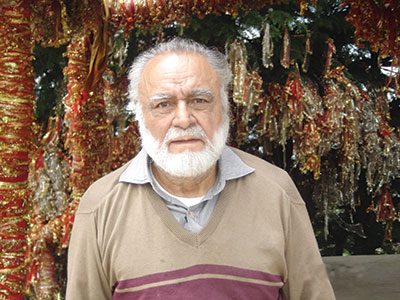
Freedom of expression is recognised AS a fundamental right under Article 19 of the United Nations Universal Declaration of Human Rights, 1948. Indeed, it has always been considered the cornerstone of all democracies.
The 19th century French philosopher, Voltaire, put it succintly, “I may disagree with what you have to say, but I will defend to the death your right to say it.” This should be the non-negotiable stand of every true democrat.
India could with some justification proudly claim that for over four decades after independence, except for Indira Gandhi’s 19 months of Emergency rule (1975-77), it had arguably the most independent press of the developing world. The only way the government could exert pressure on a newspaper critical of official policies was by withholding government advertising or not releasing sufficient newsprint imports (newsprint was then in short supply) — pressures that worked against small publications but not against mass circulation newspapers and magazines.
The Indian media scene changed radically with the advent of private cable TV news channels. Doordarshan lost its monopoly over the electronic media and became a sideshow, at least in urban areas, while private channels became dominant. Today, they are competing with the print media for influence and power. As a result, they have attracted the attention of large business houses such as Reliance and the Birlas, who have bought into these channels.
Nevertheless, the Central — and to a lesser extent — state governments are able to arm-twist them to give prominence to their viewpoints. This trend has become particularly pronounced ever since BJP supremo Narendra Modi became prime minister in 2014. The result is that Freedom House, a London-based non-profit that measures media freedom worldwide, has downgraded Indian democracy to ‘partially free’ status because of government shackles on freedom of expression and right to dissent.
Almost simultaneously, in recent years the flooding of markets worldwide with instant connectivity smart phones, has ushered in a new age of information. It has changed our lives in ways that we have yet to come to terms with. Whereas the press and television are subject to legal rules and regulations, social media is a no-holds-barred unregulated phenomenon enabling every individual to transmit whatever he/she likes for public consumption.
Over 300 million Indians now have smart phones connected to the Internet. This enables them to access social media platforms such as Facebook, WhatsApp, YouTube, and Twitter, on which they can globally broadcast their views and news. Recent corporate entrants are news portals such as The Wire, Print and Scroll which are more outspoken than television channels.
The BJP leadership recognised the reach and influence of social media even before General Election 2014 in which it routed the Congress and allied parties. But although it has substantially tamed the press and television channels, it evidently fears the unrestrained freedom of social media platforms. Therefore, on February 25, the Union government released its draft Information Technology (Intermediary Guidelines and Digital Media Ethics Code) Rules 2021. These rules have not been placed before Parliament for discussion and debate. They are unobtrusively posted on the websites of the Union ministry of information and broadcasting and the ministry of electronics and information technology for public comment which is likely to be sparse and can be conveniently ignored.
The rationale of these rules is that social media platforms are misused for hate speech and fake news which create law and order problems, and air content which is indecent and immoral and likely to mentally corrupt and destabilize citizens in all walks of life. Certainly there is a strong case to block out the flood of pornography being broadcast from numerous western countries where generating and disseminating depraved porn is a major industry that has prompted a huge rise in sex crimes around the world, especially in developing countries, where the majority of population tends to be young and impressionable.
Though some of the reasons advanced for regulating social media to detect and punish disseminators of fake news, promoters of religious and caste hatred, and ensuring the safety of children using the Internet are justified, the new social media guidelines invest government with wide powers to ban content. These regulations are also open to subjective interpretation by petty bureaucrats and policemen doing the government’s bidding. The country has already experienced misuse of the British-era sedition law to stifle dissent, and use of the Unlawful Activities (Prevention) Act, 1967 to jail social activists without trial.
Therefore the time window for debating the amended rules of the IT Act which are proposed to be finalised by “mid-May” needs to be extended to allow wider debate. With the print and broadcast media already stifled there’s a clear and present danger that social media will also be muzzled and forced to toe the BJP/NDA government’s official line. At stake is arguably the most precious right of all democracies: the right to freedom of expression.
(Rahul Singh is a former editor of Reader’s Digest and Indian Express)
Other articles by Rahul Singh:
India’s lamentable social progress
